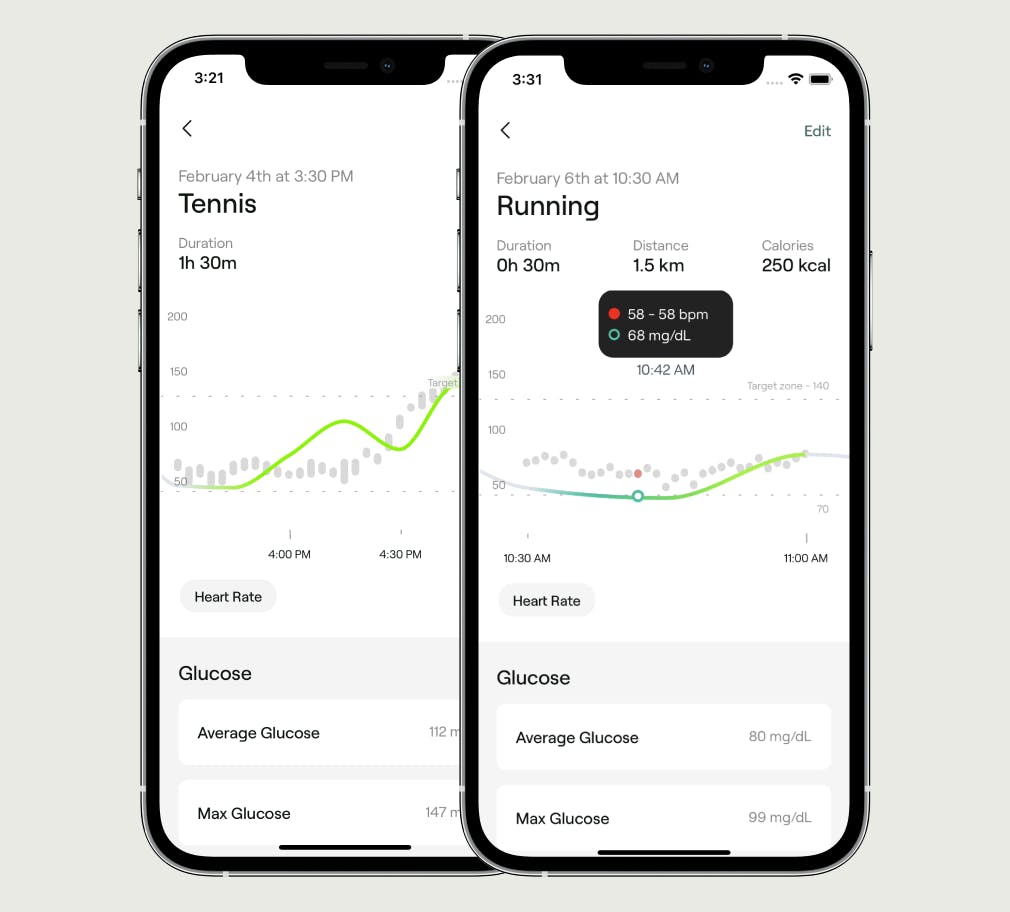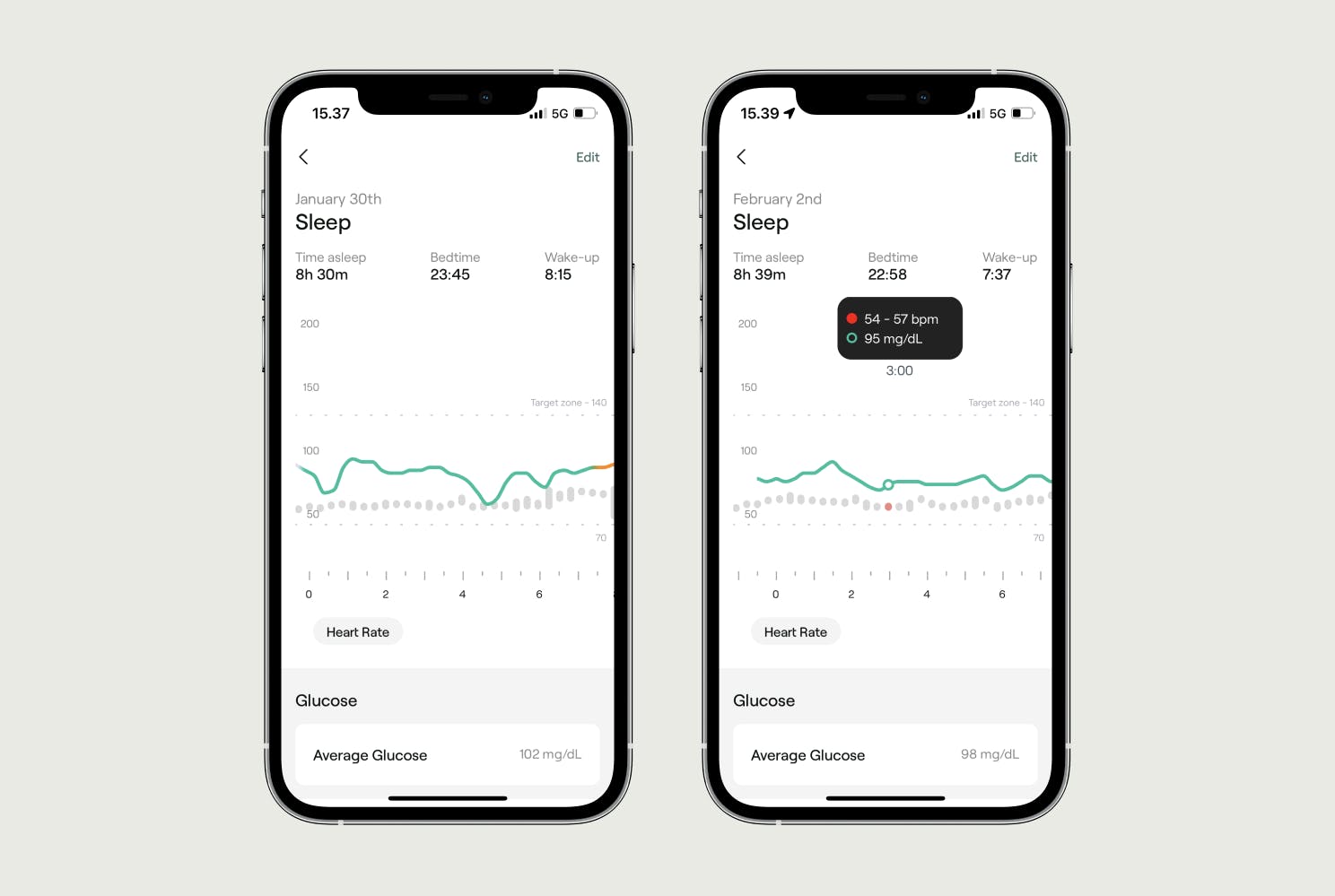Most people know the importance of metabolic and heart health but overlook how closely tied they are.
In fact, research shows that higher fasting glucose levels are associated with a higher resting heart rate, and a higher resting heart rate increases the risk of diabetes, insulin resistance, and chronic conditions [1].
Metabolic health is heart health.
Heart rate and glucose levels are closely connected. With our latest release, you’ll be able to see your heart rate alongside your glucose data for exercise and sleep to gain a deeper understanding of this connection.
The result? You can make informed exercise and lifestyle decisions to reverse insulin resistance, manage weight, and extend your healthspan.
Exercise and heart rate
Exercise is a powerful tool to improve your metabolic health and heart health.
When you exercise, your heart rate increases, and glucose will increase or decrease depending on exercise intensity.
Take low to moderate-intensity exercise, for instance. This would be where your heart rate is around 110-120 beats per minute (BPM) — think: walking, cycling, or anything where you can have a conversation.
If you are fasting, your blood glucose levels will stay flat or decline slightly, as your body will primarily use fat for fuel — a more abundant resource.
If you recently ate carbs, your blood glucose will decrease because your body will always favor the more readily available fuel source.

When you do a HIIT exercise while fasting — where your heart rate is above roughly 150BPM — you may see a glucose spike, even though you haven’t eaten. That’s because your liver and muscles provide glucose for fuel by breaking down stored glycogen — a process called glycogenolysis [2].
Armed with this data, you’ll be able to make more informed decisions about the exercise type, intensity, and timing that work for your health goals. For more seasoned athletes, this can help you make better choices around fueling for and during workouts.
Sleep and heart rate
Research shows that sleep deprivation and irregular sleep can cause poor glucose control, elevated insulin, and increased fasting glucose levels.
When you sleep, your heart rate and glucose utilization decrease because you're not active, and your body shifts to processes that help you recover from the day.

Eating late at night, drinking alcohol, or having variable bedtime can cause your heart rate to take a longer time to lower once you fall asleep.
This can disrupt your sleep, increase overnight glucose levels, lead to high fasting glucose levels, and cause insulin resistance the following day.
Understanding the link between glucose and heart rate as you sleep allows you to adjust your sleep routine and meal timing to recover more effectively.
Heart rate is available for both Android and iOS.


